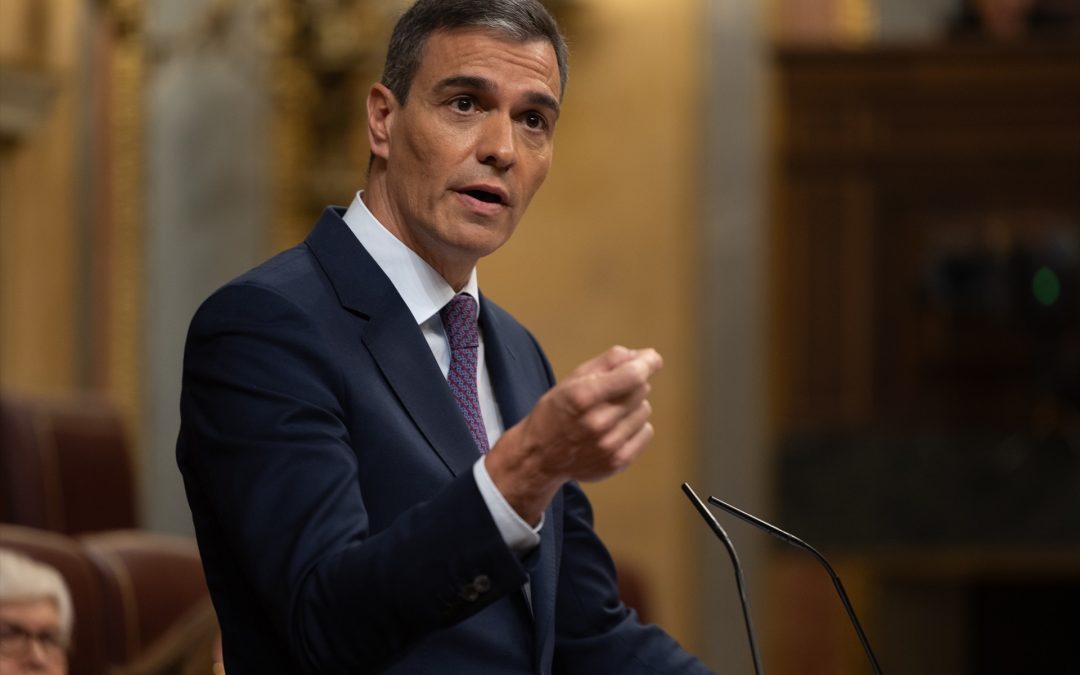The president of the Government of Spain, Pedro Sánchez, has defended before the Chinese president, Xi Jinping, the need for the European Union (EU) and the Asian giant to seek mutually beneficial solutions through dialogue to avoid a trade clash in relation to tariffs on Chinese electric vehicles and the import of pork and other goods by Beijing.
This was one of the messages conveyed to the Chinese leader at the start of their meeting held at the Diaoyutai Palace in Beijing, on the first day of his visit to China, the second in less than a year and a half.
In an “increasingly complex global geopolitical and economic context, we must work together to resolve differences through negotiation with a spirit of dialogue and collaboration and within multilateral frameworks,” Sánchez advocated, aiming to seek “solutions that are beneficial to all parties.”
In this regard, he reiterated Spain’s commitment to strengthening relations between Europe and China, advocating for a “closer, richer, and more balanced” relationship that promotes “prosperity” for both regions.
The EU must decide in the coming weeks on imposing tariffs on Chinese electric vehicles, while Beijing has threatened similar measures that would affect the Spanish pork sector.
Meanwhile, the Spanish Minister of Agriculture, Fisheries and Food, Luis Planas, has expressed his hope for a resolution to the recent trade frictions between the EU and China after the Asian giant launched an ‘antidumping’ investigation into European pork and pork product imports, as well as dairy products, in retaliation for EU tariffs on Chinese electric vehicles.
“I sincerely hope and wish that things won’t escalate further and that a possible solution is reached. I think it’s clear that in international trade we all benefit, and evidently, we benefit one another, and some sectors benefit others,” Planas reminded in an interview with Europa Press.
An international situation that “concerns” the Spanish Agriculture Minister, who regrets that “agri-food products are used as a retaliatory measure in trade conflicts.” “We are not the origin of the conflict, at the time the World Trade Organization (WTO) discussed everything related to agricultural subsidies, and we have a perfectly established framework at the international level,” he stressed.
In this regard, the agriculture minister has sent a message of “calm and serenity” to the affected sectors, reminding that both the Ministry of Economy, Trade, and Enterprise and his Department are “perfectly coordinated” with the European Commission to defend the interests of the Spanish sector and to seek a solution that avoids the imposition of tariffs on the livestock sector, which “does not deserve it.”
China has become a strategic market for Spanish foods, with exports in 2023 reaching 1,881.54 million euros and a positive trade balance of 500.42 million euros, an increase of 19.4% compared to the previous year.
 go to the original language article
go to the original language article
